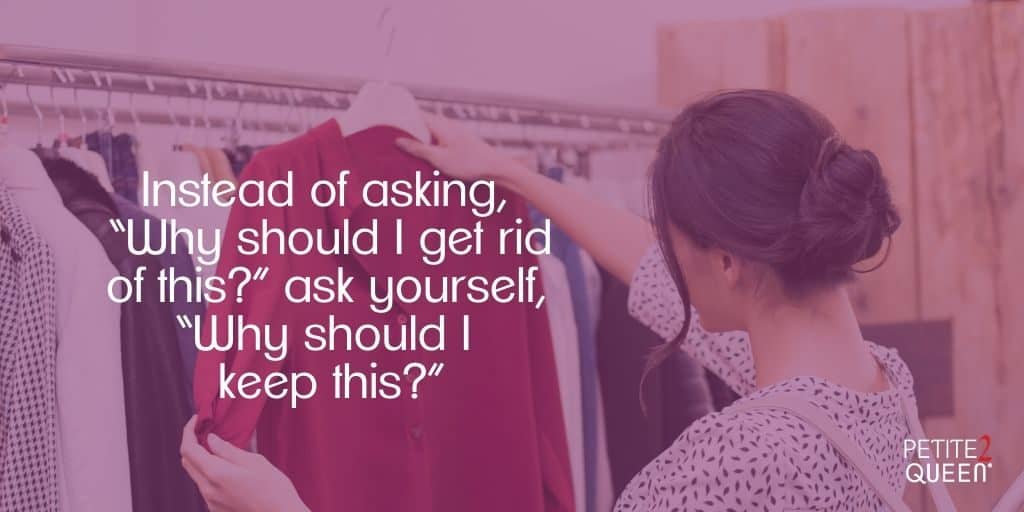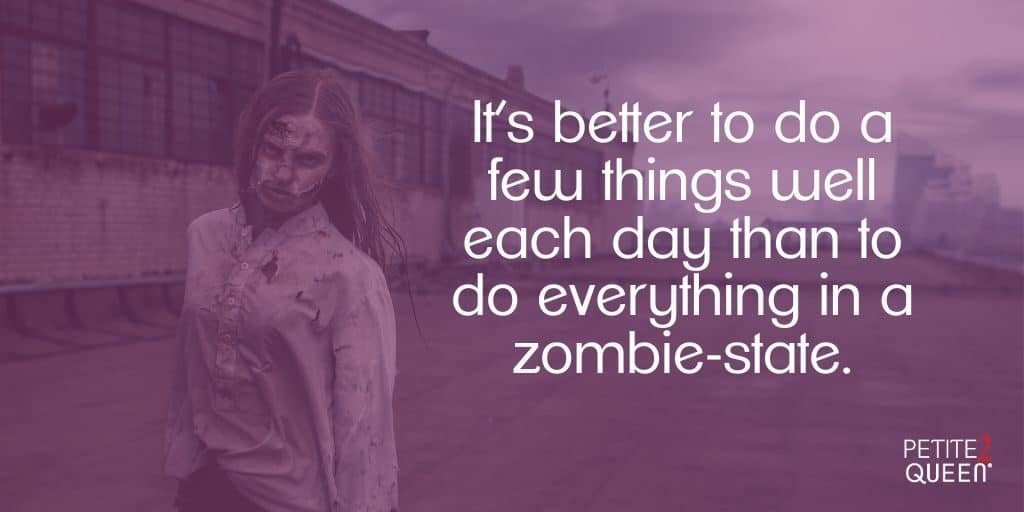You’ve probably heard the phrase “less is more.” Perhaps you’ve heard it in terms of fashion, packing for trips, or decorating your home. While “less is more” is certainly not always true, working to de-clutter your life will inevitably bring you more happiness and tranquility.
De-Clutter Your Things
I come from a family of packrats. Generation upon generation, my kin stuff their closets, attics, and garages with what seems like every item they have ever bought, every plastic bag they have ever collected, every gift they have ever received, and every piece of mail they’ve ever been delivered. For a long time, I learned this tradition quite well by never donating clothes I had outgrown and never giving away toys I no longer played with.
For most of my life, this worked. The nooks and crannies in my family home were filled, but we never had to think about it. That is, until we moved. Suddenly, we had to take everything out of the spaces they’d been crammed into and decide whether to take them with us or toss them. This was my first purge. We were moving into a much smaller space, and I hated packing anyway, so I decided that getting rid of things was easier than and preferable to bringing them along.
I did this again and again, as I moved from dorm to dorm, city to city, and my family moved to two new homes after that first move. Giving away the stuffed animals was the hardest part, but I sorted through everything I owned and got rid of a lot of it. The thing that would have surprised me most during my first purge is that I don’t miss any of it. I don’t even remember most of what I donated or threw out.

The truth is, I had it easy: I was forced to de-clutter because of moving. If you don’t have a similar motivator, it is much easier to ignore all of the clutter in your life. So how can you begin your purge?
This is a huge task, so break it down into smaller jobs. Start not with a room, but a single drawer. As you complete that drawer, you can move onto the next and the next, to the closet and beyond, as you feel energized to do more. However, once that energy peters out, leave it until the next weekend, whenever you have time to continue.
As you de-clutter, remember which question to ask. Instead of asking, “Why should I get rid of this?” ask yourself, “Why should I keep this?” Consider what purpose it’s serving in your life. When was the last time you even looked at it? In terms of clothes, with the exception of one or two formal outfits that you know still fit you (try them on!), if you haven’t worn it in the last year, get rid of it. The same principle applies for everything else: If you haven’t used it within the last year, you should harshly interrogate why you still have it.
Donating things that are still usable and recycling or tossing things that aren’t clears up space in your house. You’ll have the opportunity to (slowly) fill that space with things you like better or are more useful to you. Or you can simply enjoy the lack of clutter! Perhaps your home will feel less claustrophobic, allowing you more peace of mind.

De-Clutter Your Schedule
You know what really provides peace of mind? De-cluttering your schedule. Today’s world is very go-go-go; we’re constantly doing things, we take on as many responsibilities as we can, and we’re flitting from place to place to get everything done. While this can make us feel productive and important, the fact is that this is also exhausting. We all need down time, so make sure you’re getting yours.
A common mistake that we make is having too many tasks to complete each day. Certain things can’t be avoided, but many of us often take on responsibilities that we don’t need to. Sometimes this is through agreeing to take on projects at work that you simply don’t have the bandwidth for (and someone else could just as easily take on) or volunteering to help friends out with their own challenges. There is certainly something to be said for being generous with your help – friends have each other’s backs, after all! But you have to make sure that you prioritize your needs.
Saying “yes” might mean we avoid guilt, but remember that your “yes” means very little if you can’t say “no.” By this, I mean that you are doing your friends and peers a favor when you agree to help them – it’s not obligatory. Yeses are gifts, but those gifts are cheapened when you can’t withhold them.
Other people put too many responsibilities on themselves. They might feel like they need to exercise, cook, clean, play an instrument, read, write, and work every day. Not doing so can feel like failure to this kind of person. Relax! It’s better to do a few things well each day – and be able to recharge – than to do everything in a zombie-state because you never unwind.

Look at your schedule and responsibilities and see how you can de-clutter. As with your belongings, every task that you do should serve you in some way. This can be financially, emotionally, or socially. If something in your schedule doesn’t have value to you, remove it from your life. If there’s still too much on your plate, see if you can delegate certain responsibilities. Don’t be afraid to ask for help from your friends and family!
Some people think that being a busybody makes them look important, but that’s just not true. Even if it was, it shouldn’t be worth sacrificing your peace of mind for. Clear out as much of your schedule as possible to enjoy the moment.
Having too many things in your life doesn’t just clutter your home and your calendar – it clutters your mind. By removing items and commitments that don’t serve you, you can free up space, time, and energy for the things and activities that you enjoy. Hoarding stuff and responsibilities will make you feel like you’re drowning in them. Make space for yourself in your home and your schedule. We all need room to breathe.
Petite2Queen provides virtual mentoring to young women in life, at work, and in sales. Follow us for more practical advice you can put to use to improve your life and career.

Rachel Whitbeck is the Director of Communications & DEI Advisor at Petite2Queen. She has a PhD in Sociology from the University of Limerick in Ireland. Rachel uses her experience in writing, editing, and research to develop content that appeals to and is reflective of the diverse millennial woman.

